Is Sourdough Bread Healthy?
Making your own sourdough starter and bread has become all the rage in recent years and it hasn’t stopped. Many people love making and eating sourdough bread.
Sourdough bread has been used throughout history and it’s one of the most popular types of bread worldwide. Many tout sourdough bread for its health benefits, including low gluten levels, gut health benefits, and low glycemic index. But is it really? Can you and should you consume sourdough bread. This is what I want to talk about today.
In this article, you will learn what sourdough bread is. You will understand the nutritional content, the gluten content, and I will go over the potential health benefits of sourdough bread.
I will also discuss the potential problems with sourdough bread. You will find out the best options if you want a gluten-free option. I will share my take on consuming sourdough bread. I will also share my tips for eating it.
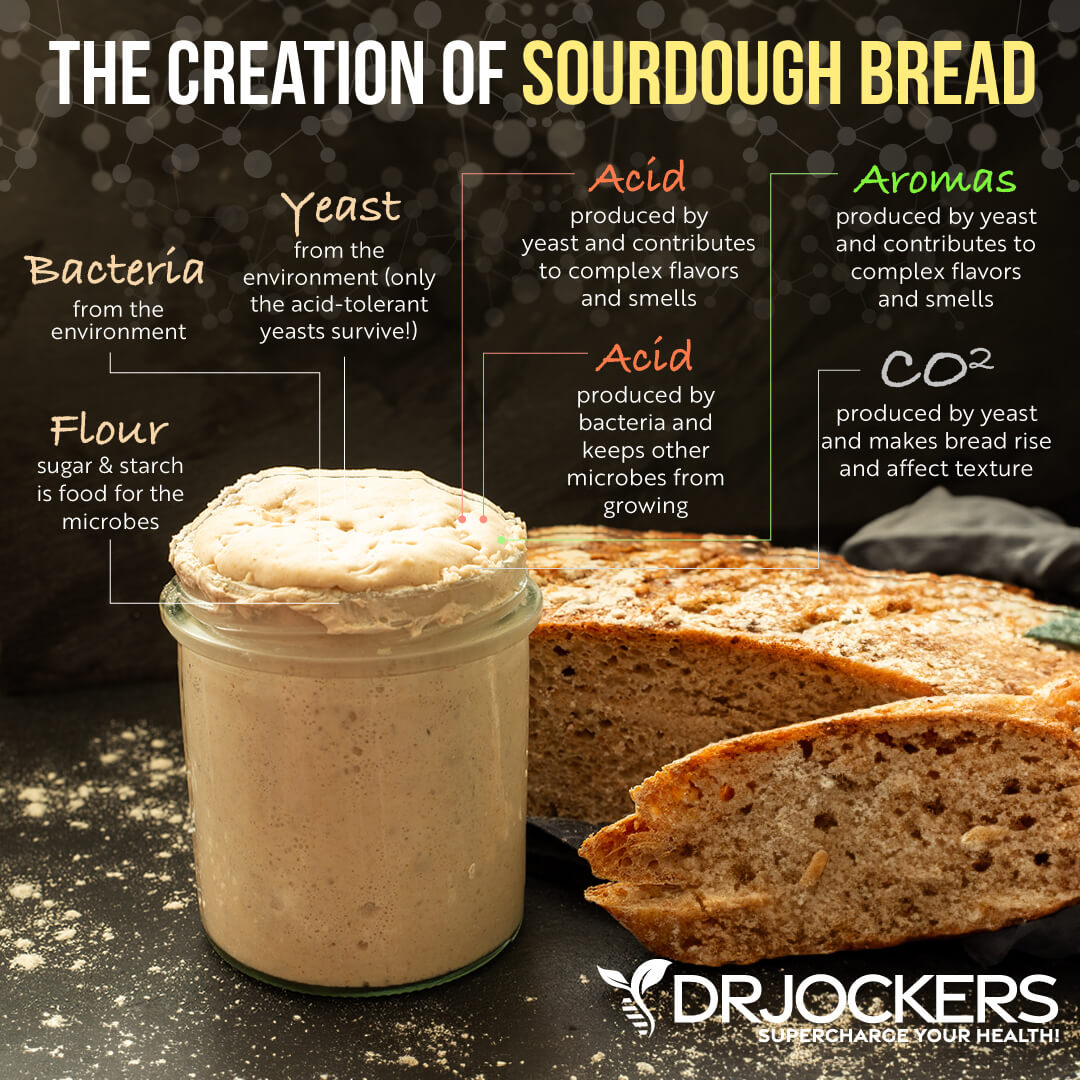
What is Sourdough Bread?
Sourdough bread has been used throughout history starting from Ancient Egypt over 5,000 years ago. Sourdough bread is essentially fermented bread. It is made by using a fermentation starter as a rising agent. These are basically probiotics that break down compounds in the bread-producing postbiotics, which have a sour taste (1, 2).
It is the first type of leavened bread and still one of the most popular types worldwide. Sourdough bread has become increasingly popular over the years on the internet too. A lot of people are making the sourdough fermentation starter and making their own bread. People are sharing their recipes and pictures of their breads online.
People hear about the potential health benefits of sourdough bread. Fermentation during the making of sourdough bread may improve its digestibility and nutrient bioavailability and reduce its effects on blood sugar. But is sourdough bread always healthy and good for everyone? You will learn all about the pros and cons of sourdough bread and my take on it throughout this article.
Nutritional Content of Sourdough Bread
When it comes to bread, sourdough bread has one of the best nutrition profiles. According to the nutrition profile of US Department of Agriculture (USDA) one slice looks like this (3, 4):
- Calories: 84
- Carbohydrates: 16 g
- Fiber: 1 g
- Added Sugars: 0 g
- Protein: 3 g
- Total Fat: 1 g
- Saturated Fat: 0 g
- Sodium: 187 mg
Sourdough is also rich in micronutrients. Here is the micronutrient content of sourdough bread:
Here is the general micronutrient content of one slice of sourdough bread (3, 4):
- Iron: 2.28 milligrams or 13% of the Daily Value (DV)
- Copper: 0.088 mg or 10% of the DV
- Manganese: 0.33 mg or 14% of the DV
- Folate: 82.6 micrograms (mcg) or 21% of the DV
- Thiamine: 0.252 mg or 21% of the DV
- Niacin: 3.17 mg or 20% of the DV
- Riboflavin: 0.218 mg or 17% of the DV
- Selenium: 17.5 mcg or 32% of the DV
- Zinc: 0.619 mg or 6% of the DV
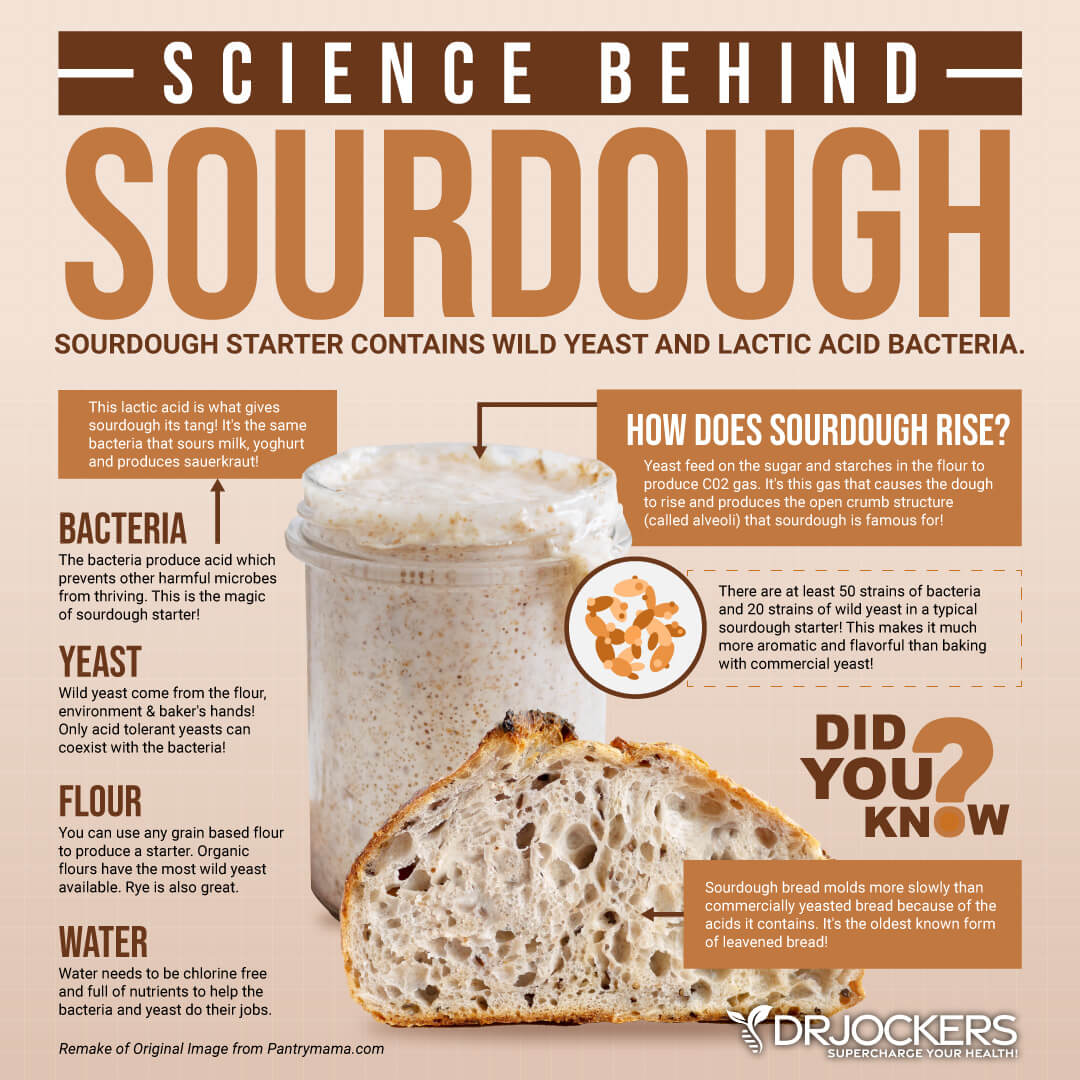
Not All Sourdough is The Same
These nutritional values, of course, may differ based on the specific sourdough bread and the size of the slice. This should give you a general idea of what nutrients sourdough bread may be a good source of.
A 2018 review published in Food Science & Nutrition has also found that the fermentation process involved in sourdough break helps to make iron, calcium, and phosphorus more bioavailable (5).
It is important to mention that not all sourdough is the same. You can make your own or buy it at artisan bakeries, farmer’s markets, and grocery stores.
Most sourdough bread in grocery stores is not made using whole-grain flour. If this is what you are looking for, you can make sourdough bread with whole wheat flour at home or sometimes find them at artisan bakeries and farmer’s markets. A great website for learning more and making your own sourdough bread is with Pantrymama.com
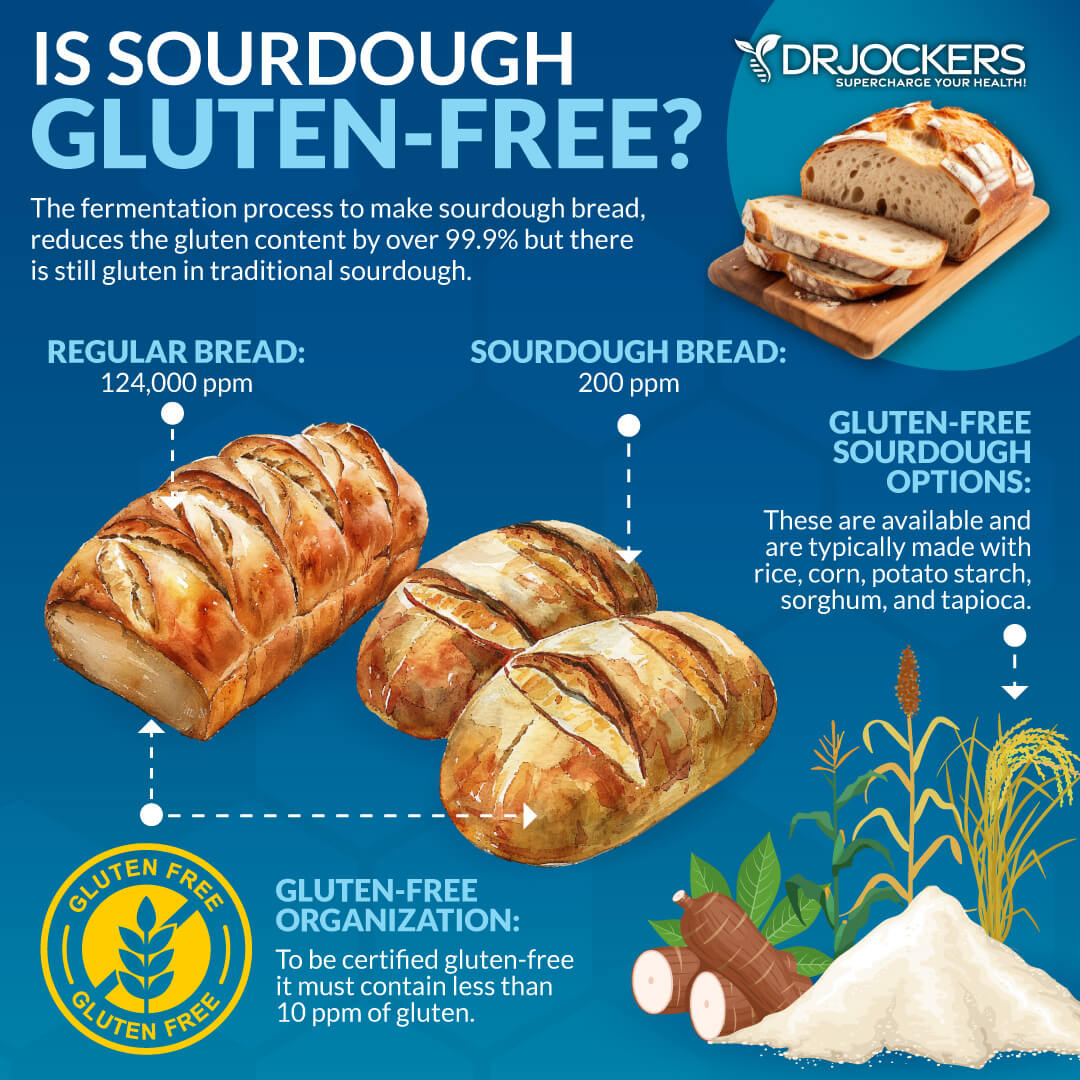
Gluten Content in Sourdough Bread
Hearing about the benefits of sourdough bread, a lot of people ask, ‘Is sourdough bread gluten free?” Your typical bread, has on average a 124,000 ppm of gluten in a typical serving. Because sourdough is fermented, it reduces a significant amount of gluten, leaving on 200 ppm of gluten in a typical serving of sourdough bread. This is a huge reduction.
However, for something to be gluten-free, according to the US Food & Drug Administration (FDA), it has to have less than 20 ppm of gluten in a typical serving. The Gluten Free Certification Organization (GFCO) requires less than 10 ppm of gluten in a typical serving.
So, your typical sourdough bread is not gluten-free. It is very low in gluten compared to other breads. It is not appropriate for people with Celiac disease. It is also not appropriate for those with serious gluten sensitivities and intolerances. However, in low to moderate amounts, it may work well for people with Celiac disease and gluten sensitivities.
Why is this? When you take in a lot of gluten in can cause some issues. Gluten stimulates a protein called zonulin. When zonulin levels go up, it can create more permeability in your gut causing leaky gut syndrome.
This means that harmful end-products, harmful microbes, toxins, and larger food particles can slip into your blood stream, increasing the risk of chronic inflammation, gut microbiome imbalance, autoimmunity, and chronic health issues (6, 7).
If you want to find a good organic, gluten-free source of sourdough bread with high-quality ingredients, I like the Young Kobras Organic, Gluten-Free Original Sourdough Bread.
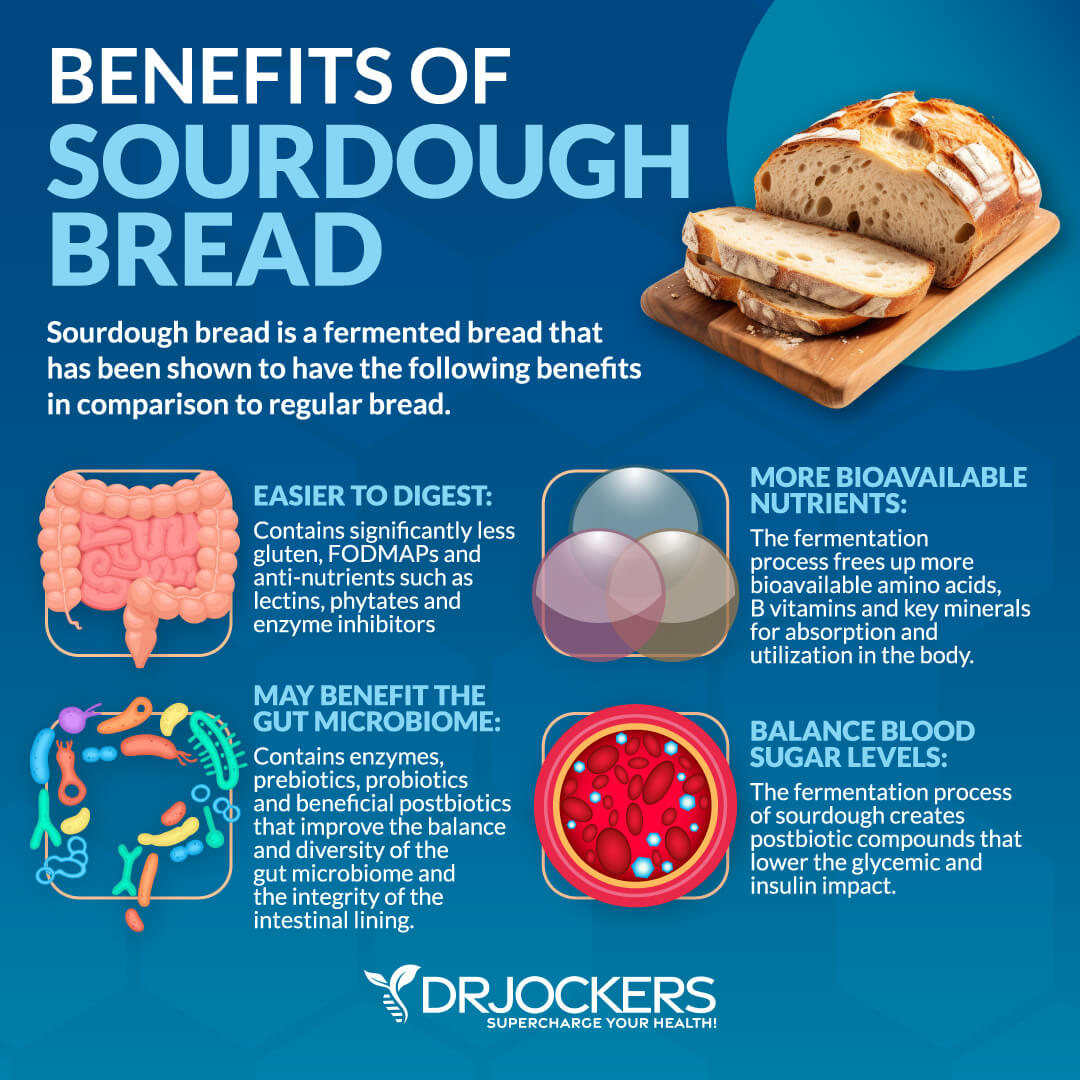
Potential Benefits of Sourdough Bread
Consuming sourdough bread has some potential health benefits for the body. Let’s go over them:
Easier to Digest
Sourdough bad may be easier on your digestion than other types of bread. They are very low in gluten so there is a lower risk of leaky gut and other gluten-related issues. Of course, as I discussed earlier, even this little amount of gluten may be an issue for many.
Sourdough bread also has lower levels of FODMAPs and antinutrients. FODMAPS are fermentable oligosaccharides, disaccharides, monosaccharides, and polyols. These are short-chain carbohydrates that absorb poorly in the small intestine and may cause digestive issues in some.
A low-FODMAP diet is often recommended for people with irritable bowel syndrome (IBS) or other digestive issues. Anti-nutrients, including lectin and oxalates, may also cause digestive disruption.
Having lower levels of these may mean that sourdough bread is easier on the gut and more digestible than other breads. Always listen to your own body, though, and if you notice digestive issues after consuming sourdough bread, cut back or ditch it completely.
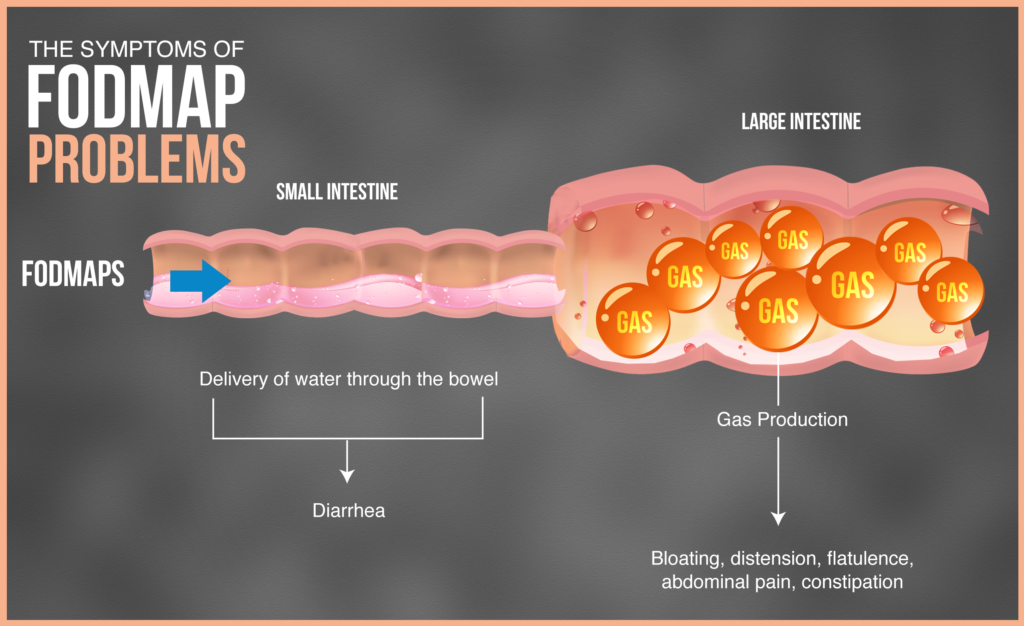
More Bioavailable Nutrients
As you learned earlier, a fermentation process is involved with sourdough. This fermentation breaks down anti-nutrients in bread. This results in freeing up amino acids and improving mineral and B vitamin absorption.
For example, according to 2018 review published in Food Science & Nutrition, the fermentation process helps to make iron, calcium, and phosphorus more bioavailable (5). By supporting your gut microbiome and digestive health, it may also help the absorption of nutrients.
May Benefit the Gut Microbiome
The fermentation process in sourdough is the secret to most potential health benefits of sourdough. The fermentation process may increase prebiotics, probiotics, and postbiotics in sourdough bread. This is, of course, great news for your gut microbiome and overall gut health.
According to a 2021 review published in Microorganisms, the probiotic properties of sourdough bread may help to improve gut health (8). Specifically, lactic acid bacteria (LAB) strains are generally part of sourdough starters.
Moreover, sourdough bread contains lots of fiber, which is essential for your gut microbiome and digestion. Prebiotic fibers, specifically, feed beneficial bacteria in your gut. The ones made with whole grains are higher in fiber, which means increased digestive benefits.
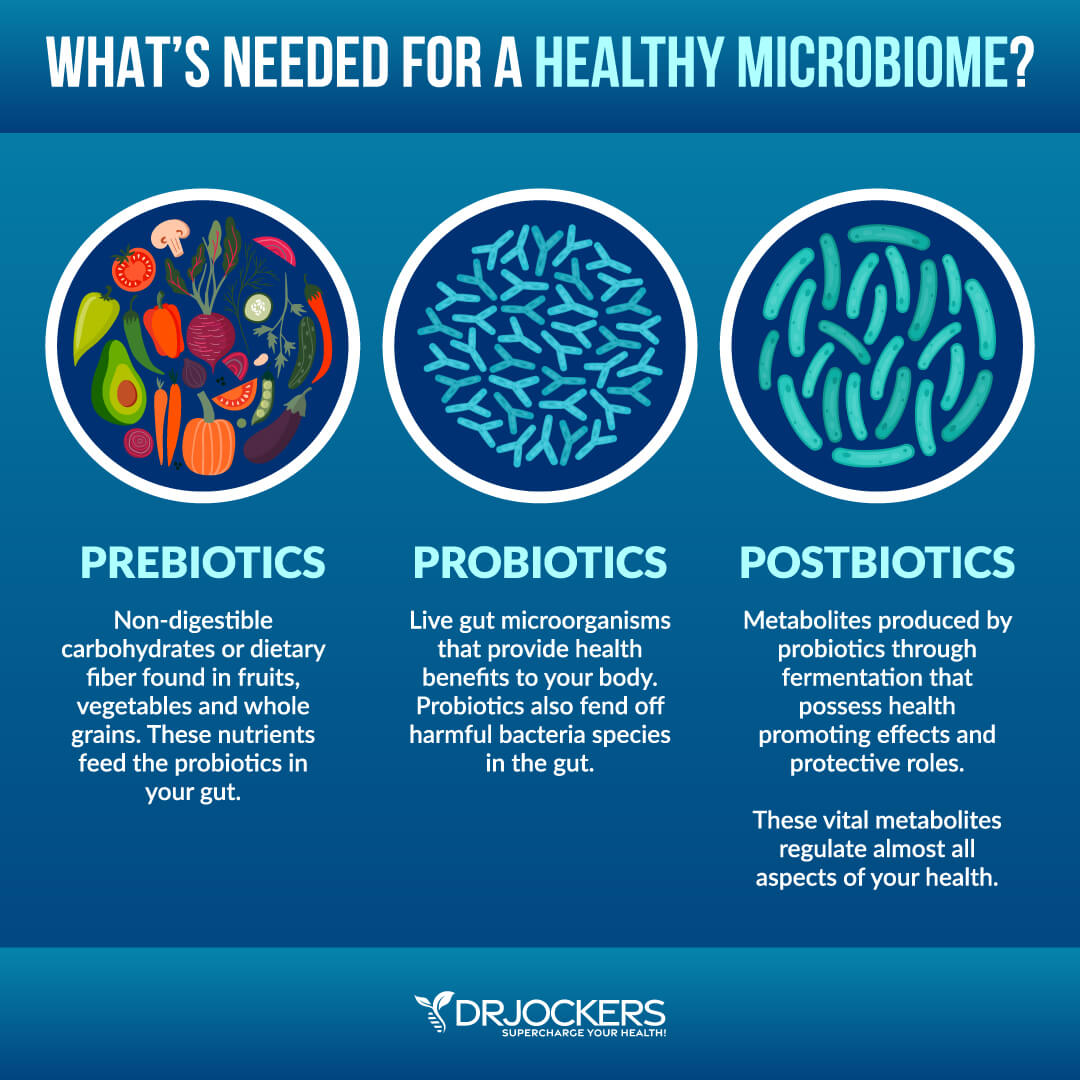
Supports Digestive Health
Besides supporting your gut microbiome health, sourdough bread has even more digestive benefits due to enzymes and postbiotics, such as saturated aliphatic organic acids (SCFAs) that may help to reduce gut inflammation. Postbiotics are byproducts left behind after the digestion of prebiotics and probiotics.
Prebiotics, probiotics, and postbiotics are part of the same process and complement each other. According to a 2020 study published in Nutrients, using postbiotics may be an effective strategy for improved gut health (10).
According to a 2021 review published in Foods, eating sourdough bread may help to improve the digestion of gluten (9). Of course, this doesn’t mean that you should choose a high-gluten diet and add some sourdough bread into the mix.
This happens because the sourdough may change the enzyme in the wheat. But it means that it will be easier to digest sourdough than other bread and that sourdough may help to counteract negative reactions of gluten.
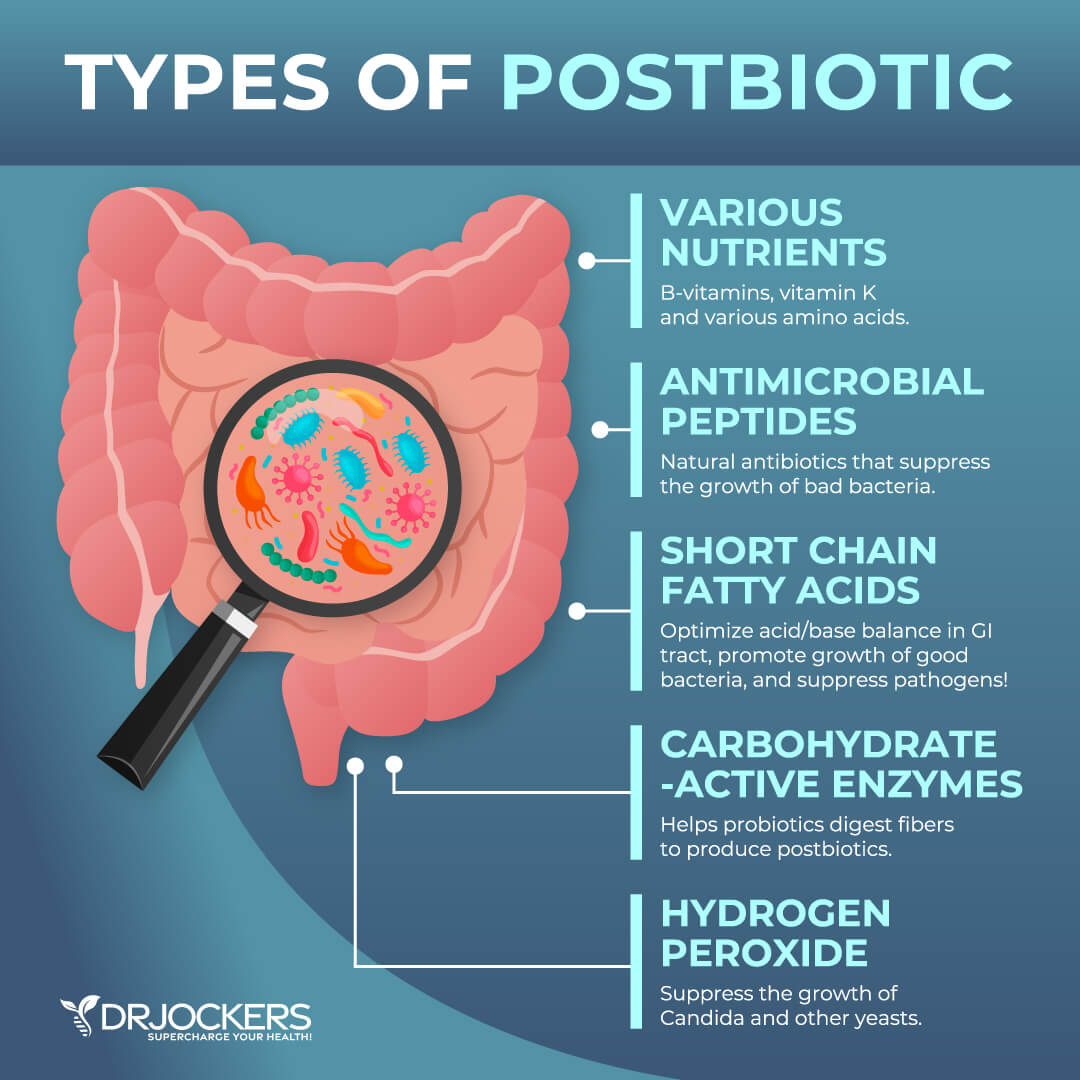
Balance Blood Sugar Levels
Finally, sourdough bread may be easier on your blood sugar and may help to keep your blood sugar levels balance. Eating carbohydrates can generally lead to a rise in blood sugar. This can cause a quick spike then a sudden dop in blood sugar levels. If this happens too often, it can lead to blood sugar imbalanced and the increased risk of insulin resistance, prediabetes, and diabetes.
This doesn’t mean all carbohydrates are bad. The glycemic index and glycemic load of a food matters. The glycemic index refers the the measurement of how much your blood sugar levels increase after eating a certain food.
Glycemic load refers to how quickly this spike may happen. Lower glycemic index foods have lower effects on your blood sugar.
Sourdough bread has a lower glycemic index, lower glycemic load, and is insulogenic, especially compared to white breads and whole wheat bread. A 2024 systematic review published in the Critical Reviews in Food Sciences and Nutrition has found that sourdough is effective in reducing the increment of postprandial glycemia, especially when made with whole grains (11). The fiber content and postbiotic SCFAs may further help to reduce glycemic impact.
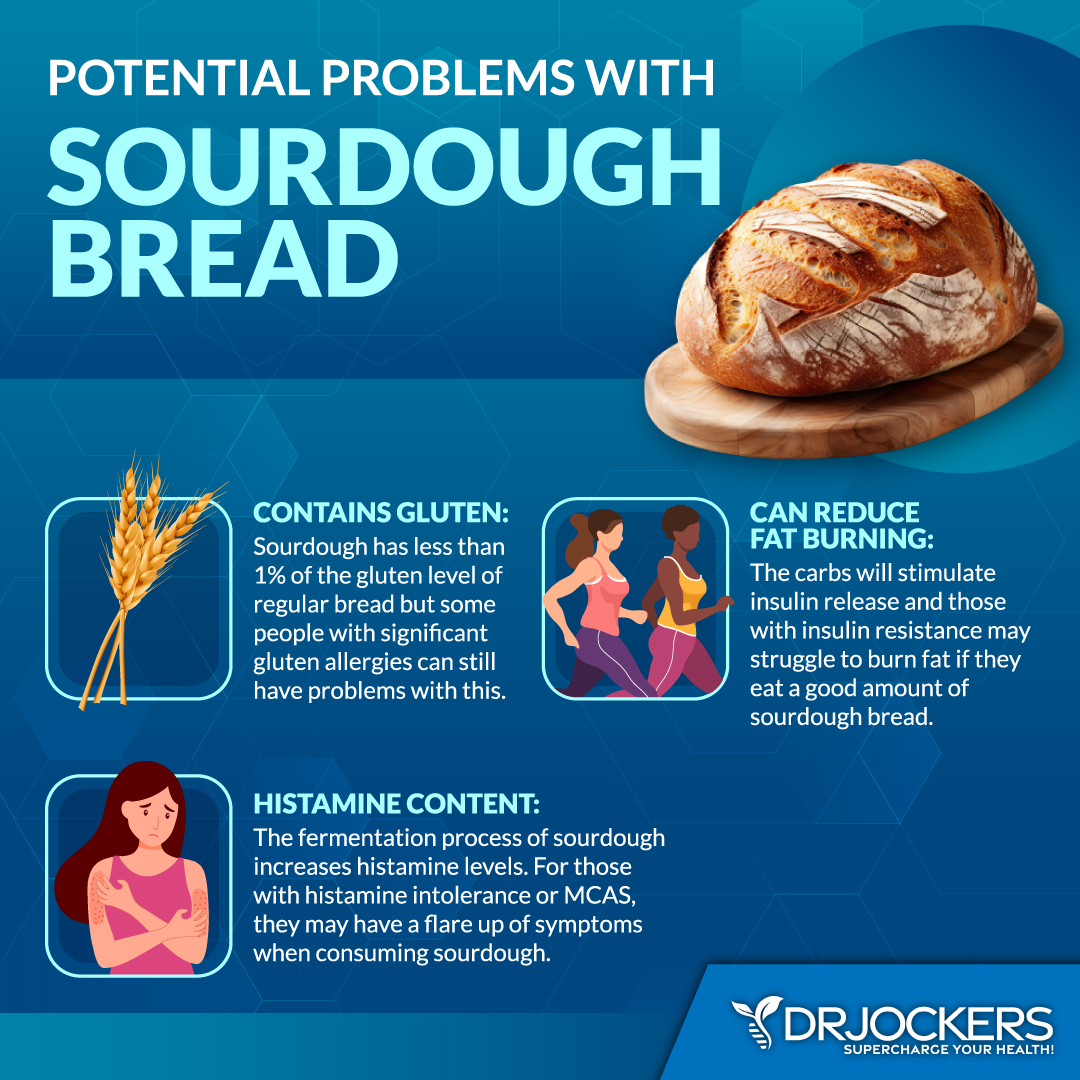
Potential Problems with Sourdough Bread
Consuming sourdough bread has some potential downsides as well. Let’s look at the potential problems with sourdough bread.
Contains Gluten
Although significantly less, sourdough bread still contains gluten. This can still be a problem for those with celiac disease, non-celiac gluten sensitivity, autoimmune conditions, and other issues. If you are dealing with chronic inflammatory conditions and gut health problems, the gluten-containing compounds in sourdough bread can be a problem.
For people with autoimmunity, I recommend consuming as little gluten as possible. After reducing inflammation, improving gut microbiome health, and correcting other gut health problems, consuming sourdough may be possible, however, not with all conditions.
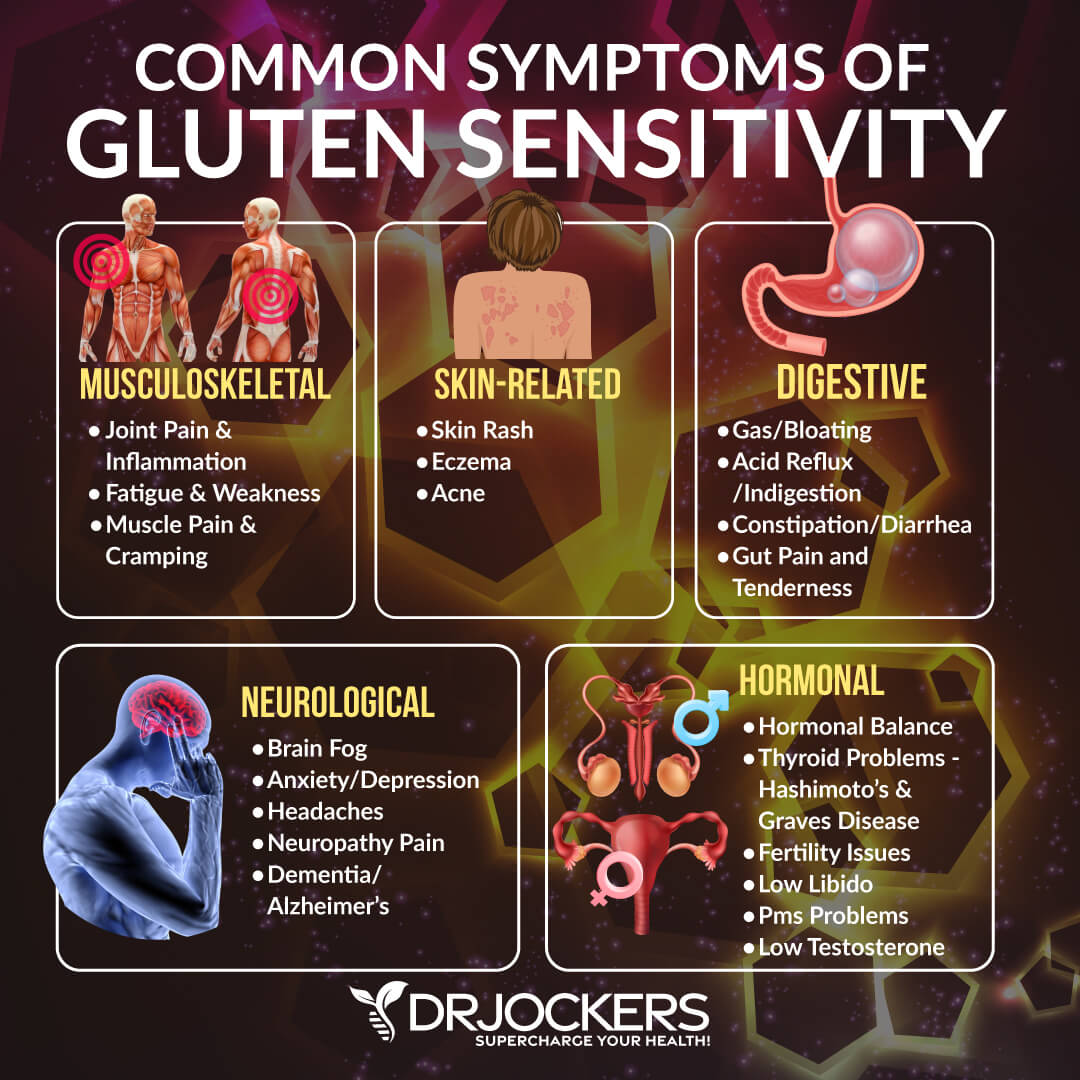
Can Reduce Fat Burning
For some people, the overall carbohydrate load may not be beneficial either. Although sourdough bread is less insulogenic than other high-carbohydrate bread sources, it may not be enough.
For people who are highly insulin resistant or have prediabetes or diabetes, sourdough bread may not be appropriate. Sourdough bread is still higher in carbs, so it may interfere with a fat-adapted lifestyle and fat burning. If you are looking to increase fat burning and weight loss, sourdough bread may not be right for you either.

Histamine Content
Finally, if you have histamine intolerance or mast cell activation syndrome, sourdough bread may not be a good option for you either. People with histamine intolerance often struggle with fermented foods which have higher histamine content.
Reducing your overall histamine load and improving DAO enzyme levels to break down excess histamine may help you tolerate sourdough bread better in the future. However, this may not happen for everyone.
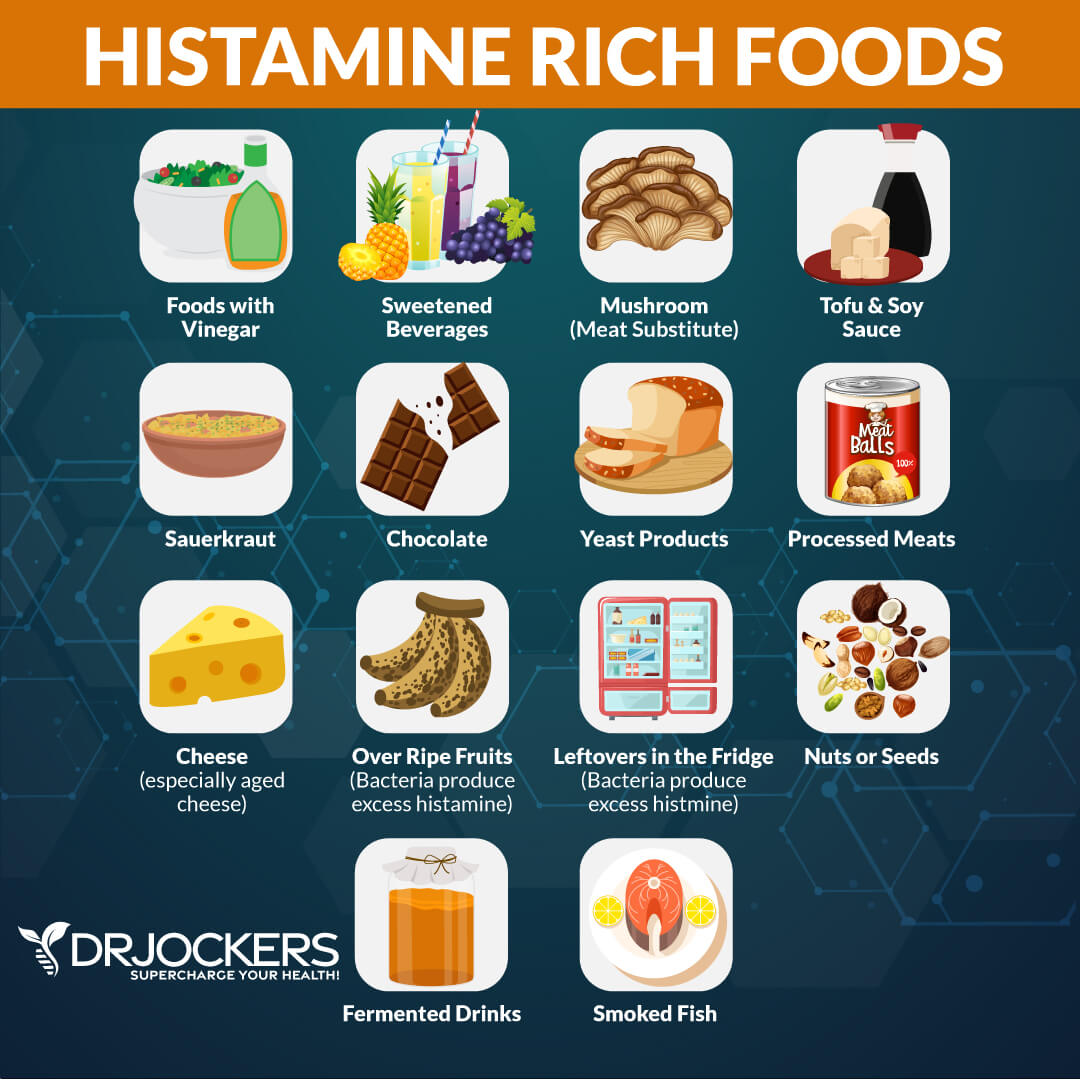
Can Sourdough Be Made with Gluten-Free Flours?
Sourdough bread can be made with gluten-free flour. However, it may not be the right option for you. You may find gluten-free sourdough starters and gluten-free sourdough bread.
The problem is that these breads often contain rice, corn, or other gluten-free grains that are common sensitivities that may cause issues. So, you have to look at the other ingredients and consider your other potential food sensitivities. If you are uncertain, you may try it and see how your body reacts.
If you want to find a good organic, gluten-free source of sourdough bread with high quality ingredients, I like the Young Kobras Organic, Gluten-Free Original Sourdough Bread.
My Overall Take on Sourdough
I think it can be used in moderation for people who are healthy and have inflammation under control. It is a much better nutritional source than processed bread or whole grain breads. I recommend avoiding it or only using it minimally if you have severe digestive problems, autoimmunity, diabetes, fatty liver, or obesity.
As listed earlier, it is also not appropriate for people with Celiac disease and may not be right for some with non-celiac gluten sensitivity, wheat allergies, insulin resistance, or histamine intolerance. If you don’t have these conditions, overall health, enjoy making or consuming sourdough bread, and feel good after, you may eat sourdough bread along with a balanced, healthy diet.
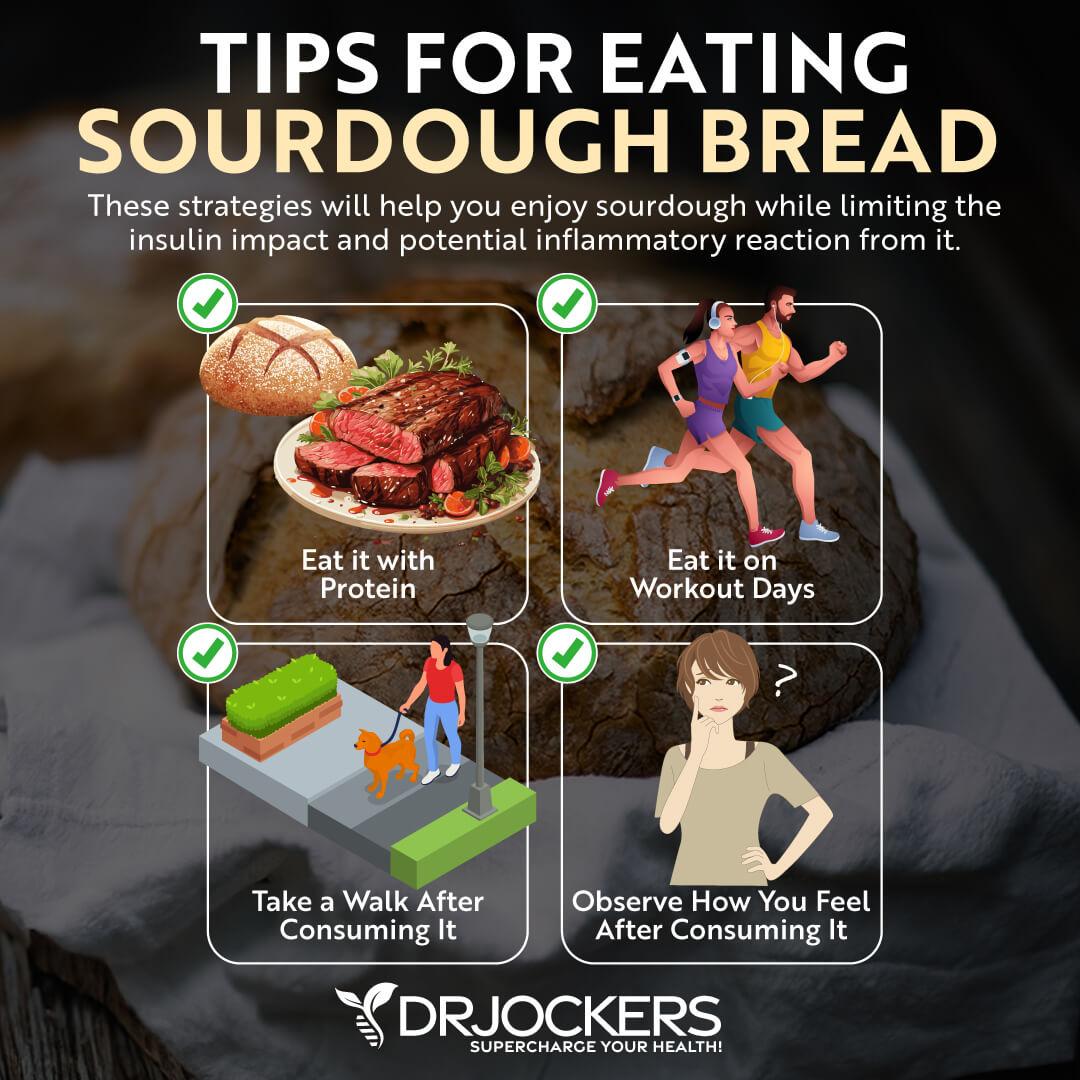
Tips for Eating Sourdough Bread
If you want to consume sourdough bread and it is right for your personal health situation, I recommend following these tips for eating sourdough bread:
Eat it with Protein
I recommend eating sourdough bread along with some protein sources. This may help to reduce blood sugar and insulin rise.
For example, you may enjoy a slice of sourdough bread with a slice of egg and bacon for breakfast, with some wild-caught fish, pasture-raised chicken, or grass-fed beef for lunch, or eat it alongside a meat stew in the evening. You may also add some healthy fats, such as avocados, grass-fed butter, or extra-virgin olive oil to the mix.

Eat it on Workout Days
If you are eating sourdough bread, I recommend consuming it on your workout days. Exercise burns through stored glycogen, activates Glut-4 transporter, and clears glucose from the bloodstream.
This may help lower insulin levels, reducing the risk of blood sugar imbalances for carbohydrates even more so. Workouts also improve fat burning.
Take a Walk After Consuming It
I also recommend taking a walk after consuming sourdough bread. This will help further stabilize blood sugar and insulin levels.
A short walk is also a great way to support digestion, get some movement in, get some fresh air, enjoy the sun, or connect with friends or family.

Observe How You Feel When Consuming It
Finally, I recommend being in touch with your body. Pay attention how you feel during and after consuming sourdough bread. Do you have more energy? Do you notice better digestion? Perhaps, less cravings? Or perhaps the opposite?
Do you experience fatigue or poor digestion. Is it easier or harder to fast 4 to 6 hours between meals or to do intermittent fasting? Do you feel mentally sharp or have brain fog?
Everyone is different. One may be able to consume more than their spouse and feel-good eating sourdough bread. Others may not be able to consume much without feeling bad. Listen to your body. Find the amount you feel best with.
If you want to find a good organic, gluten-free source of sourdough bread with high quality ingredients, I like the Young Kobras Organic, Gluten-Free Original Sourdough Bread.
Final Thoughts
Sourdough bread has been used throughout history and it’s one of the most popular types of bread worldwide. It has some potential health benefits, including low gluten levels, gut health benefits, and low glycemic index.
It also has some potential downsides, including containing gluten, disrupting fat burning, and high histamine levels. I recommend that you consider your health issues and listen to your body. If you decide to consume sourdough bread, I recommend that you follow my tips to get the best results.
If you want to work with a functional health coach, I recommend this article with tips on how to find a great coach. Our website offers long-distance functional health coaching programs with our world-class team of health coaches. For further support with your health and other goals, just reach out—our fantastic coaches are here to support your journey.
Inflammation Crushing Ebundle
The Inflammation Crushing Ebundle is designed to help you improve your brain, liver, immune system and discover the healing strategies, foods and recipes to burn fat, reduce inflammation and Thrive in Life!
As a doctor of natural medicine, I have spent the past 20 years studying the best healing strategies and worked with hundreds of coaching clients, helping them overcome chronic health conditions and optimize their overall health.
In our Inflammation Crushing Ebundle, I have put together my very best strategies to reduce inflammation and optimize your healing potential. Take a look at what you will get inside these valuable guides below!
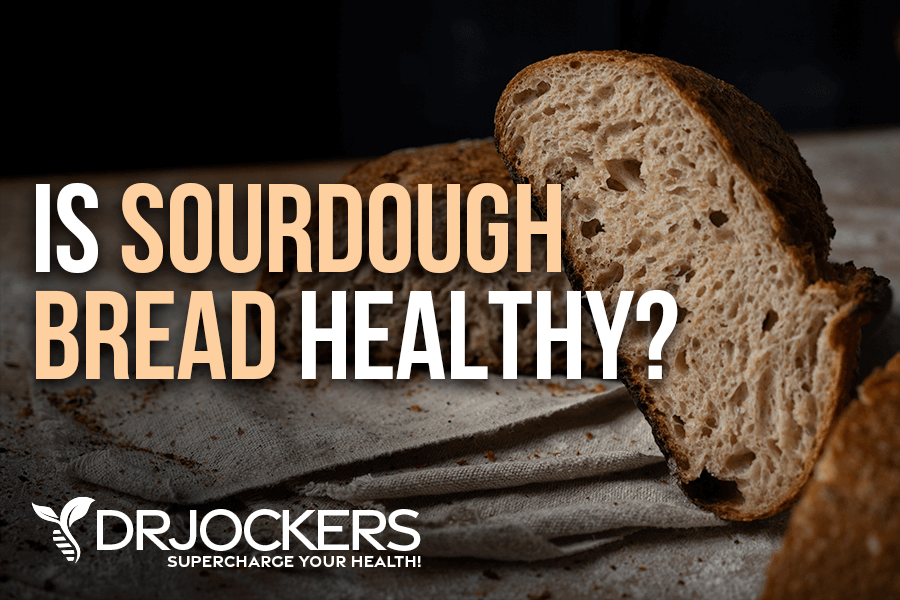
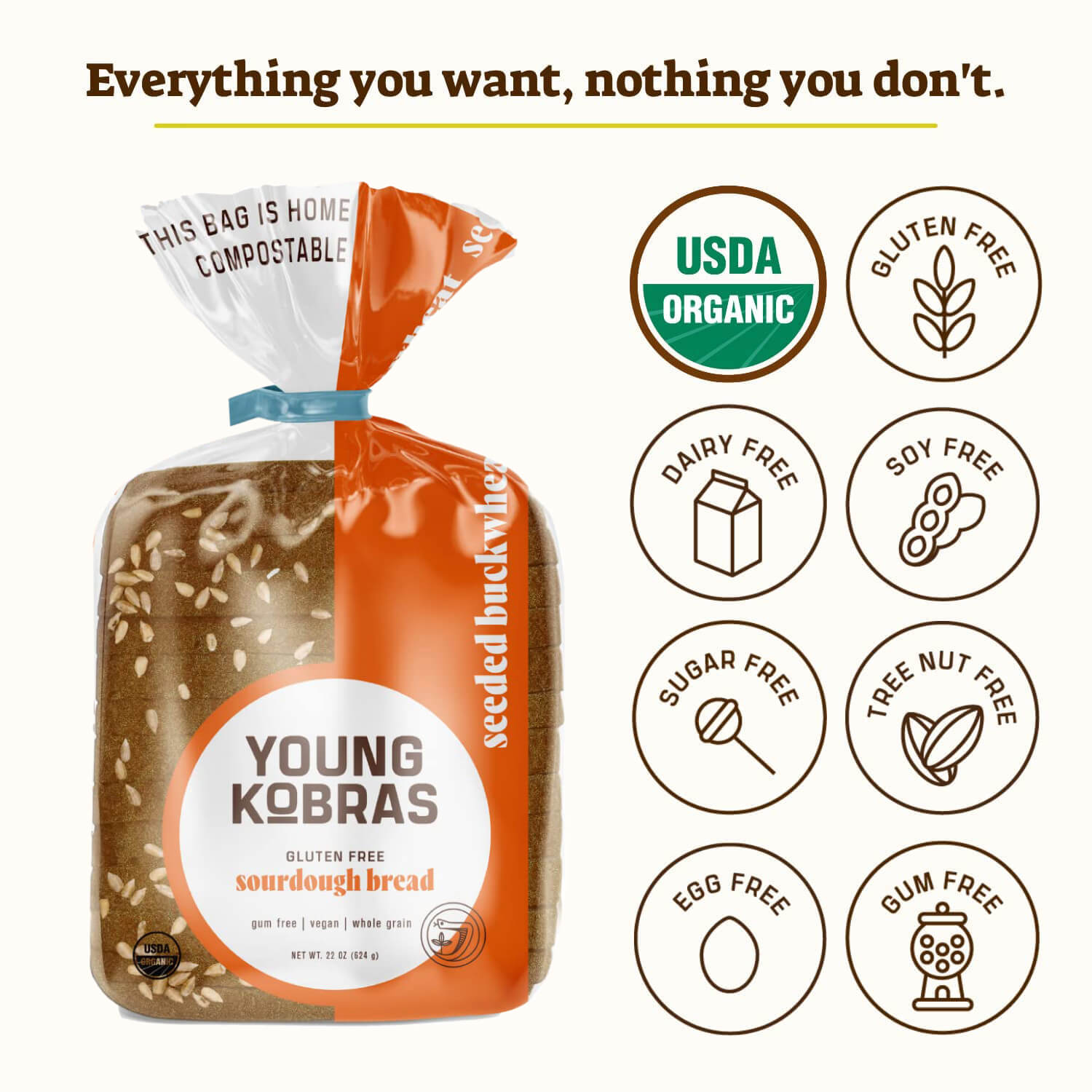
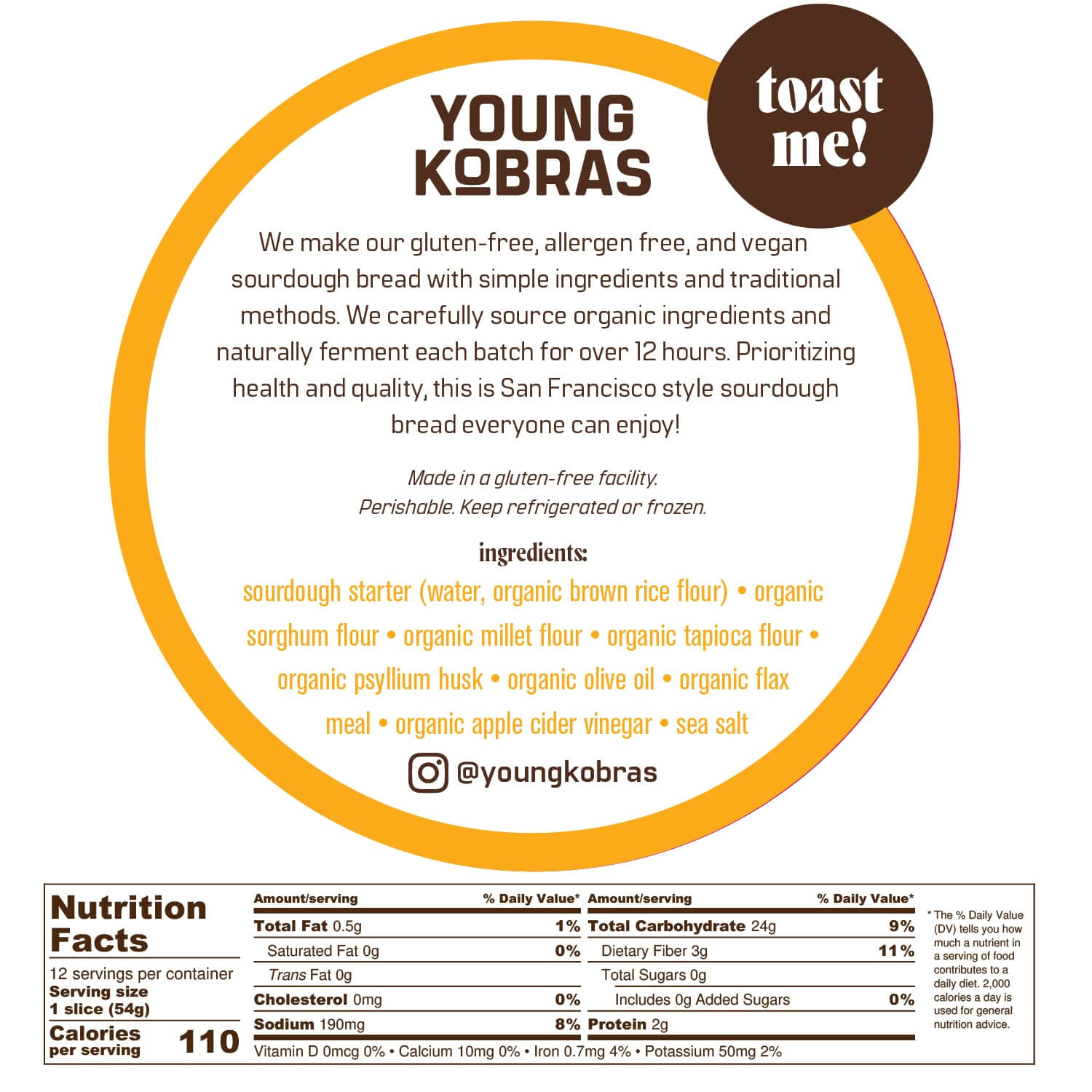




I have found a much better gluten-free sourdough bread than the one you recommend. It is Pacha Buckwheat Sourdough Bread. I love the toast!
Just 2 simple ingredients!
1.8g fiber, 0g sugar, 2.3 grams protein per slice
Free of the top 8 allergens:
Grain Free
Gluten Free
Dairy Free
Egg Free
Nut Free
Soy Free
Wheat Free
Peanut Free
Sprouted, Fermented, and easy to digest
Thanks for sharing! Please put down the link.
Thank you so much for posting this! Since all grains contain gluten, it’s so hard to find truly gluten-free items. I’ll be ordering this.
Hi Dr Jockers,
What a great article on sourdough bread! The presentation was graphically pleasing too.
We have a sourdough rennaisance going on here in the San Juan Islands, where the bakers are also the farmers of grains which flourish in our maritime climate and improve the soil rather than diminish it. They study the soil microbiome to further elevate the nutritional value of their grains. Then after harvest, we have a real miller on the island who grinds their local grain which is then blended to produce a delicious bread using the sourdough method.
IThe loaves are formed by habd and set to rise in baskets before baking in a wood fired oven. We are blessed with their results, but it is an infrequent treat. After your article however, we will eat it more often, My husband is trying to recover from being a diabetic for twenty years. Hence the attention to carbs, One again, thank you for a fine post today!!
Thank you for a professional article. May I ask you about your opinion on wheat sourdough versus rye sourdough? The benefits, differences, gluten contents…Thanks a lot
After having a reaction (hives) to sourdough I discovered that sourdough has natural occurring sulfites and I am allergic to sulfites.
As you noted, “The problem is that these breads often contain rice, corn, or other gluten-free grains that are common sensitivities that may cause issues.” The reason rice and corn can cause issues is that they too contain gluten. According to Dr. Peter Osborne of the Gluten-Free Society, ALL grains have gluten and are best avoided by those with a gluten sensitivity.
It would be nice to know how “you” would make sourdough bread
Thank you for the detailed and insightful write-up. I have a question about the probiotics in sourdough bread. My understanding is that probiotics are alive, but the high temp baking process of the bread would kill those. Would it not? Can you please help clarify what actually happens to prebiotics, probiotics and postbiotics in cooked foods?
What Does Doctor Jockers mean by following a Grain Free diet? What would that eliminate exactly?? Thank you.
“Real” sourdough does not contain yeast. Only starter, salt, water and flour.